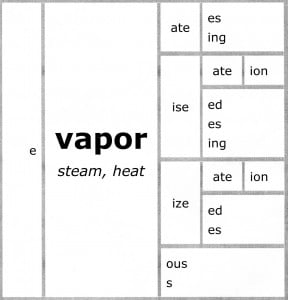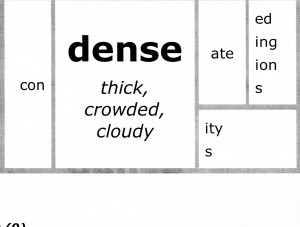I decided to give a quiz of sorts on Monday of this week. I asked the students to write the word <prejudice> on one side of the paper, and <segregation> on the other. These are words that we have investigated in the last two weeks. For each I wanted:
1) the definition
2) a word sum
3) two other word sums showing the base with other affixes
4) two words with related meanings
I learned much! The vast majority of the students spelled both words correctly, but the vast majority did not write an accurate word sum for that spelling. For some of my students the tendency is to divide words by syllables rather than bases and affixes. This makes for some random word sums as their hypothesis! Even though they have knowledge about certain prefixes and suffixes, they aren’t applying that yet on an automatic basis. I’m confident that as the investigations continue, and they talk about why they are making the choices they are making, that this will all come together.
Today we split into four groups. Two groups investigated <evaporation> ,and two groups investigated <condensation>. Rather quickly, both groups looking at <evaporation> found the base element to be <vapor>. We all found out that <e> is from the prefix <ex> which means out. That really helped with picturing evaporation! Students used their hands to describe the vapor moving in an outwards direction.
The suffixes <ise> and <ize> in the matrix for the base <vapor> reminded us of the books we read by Roald Dahl earlier in the year. As we read we collected spellings that were slightly different than what we were used to. We remembered the word <realise>, which we knew was a British English spelling rather than what we are used to – American English spelling.
The two groups investigating the word <condensation> approached it quite differently. The first group began with a pretty accurate word sum hypothesis. Then they looked up <condensation> and <dense> to find out more. With prompting they added the meaning of the prefix to their understanding of the base.
The second group was trying all sorts of random letter combinations as part of their word sum hypotheses. At first it didn’t seem as if they had a plan, meaning a logical order for how to proceed with their investigation. When I asked if they had looked on their list of proven prefixes to see if anything matched what they were seeing in the word, things began to click.


